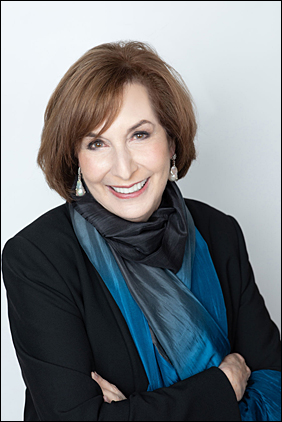Trust In The 2020s
Trust in 2022 can be a scarce thing. Trust in government, the media, corporations and even each other, is on the wane. And within businesses, trust concerns can create or exacerbate problems that affect the bottom line. PPB Newslink recently spoke with author and Harvard Business School professor Sandra Sucher on what trust is, in a business context, how it grows, and how promotional products leaders can build and leverage it with both employees and clients.
 Sucher has spent two decades studying the nebulous topic of trust. Her third book, The Power of Trust: How Companies Build It, Lose It, Regain It, is based on her research on global companies’ best practices and in the gray areas of business—where responsibilities to investors, customers, employees, and society pull companies and their leaders in different directions.
Sucher has spent two decades studying the nebulous topic of trust. Her third book, The Power of Trust: How Companies Build It, Lose It, Regain It, is based on her research on global companies’ best practices and in the gray areas of business—where responsibilities to investors, customers, employees, and society pull companies and their leaders in different directions.
“It’s important to define what we mean by trust, when we talk about it in an organizational context,” Sucher says. “In that regard, trust is a willingness to be vulnerable to the actions and intentions of others. As businesspeople, we’re focusing on other people’s vulnerability to us a willingness to be vulnerable to us. That means there’s some learning whether or not you can be trusted or not.”
Trust is other people’s vulnerabilities. As such, Sucher notes, when talking about the trust between a business and its customers, the perspective has to be from outside the company looking in, and not from inside looking out. She says, “We’re focusing on the perceptions and views of people outside the corporation and how they judge us. Which means that you can’t ever assume that you’re trusted. It’s something that’s in the eyes and hands of other people.”
Between a business and its customers, trust is contextual and based on the nature of the interaction. Sucher describes it as “domain specific.” Expanding on the idea, she says, “When I’m trusting some brand that sends me merchandise, the only thing I’m trusting in that moment is that the merchandise does what it’s supposed to do. Which is helpful, because that means it’s not like it’s all trust, all the time. It means that when I fulfill this order, I am either going to build trust or lose it. Understanding that trust is specific and particular helps people get their arms around something very mushy and not defined.”
The trust between business and client or customer can ebb or grow over time. Ultimately, it’s something that has to be built. In Sucher’s research, trust is a judgement based on a number of different factors.
“If you trust someone, what allows you to decide that?” Sucher says. “The first and foremost is competence. I’m going to trust people who can do the things they tell me they’re going to do, and it turns out they’re able to do those things.”
Competence alone is not enough to build trust, however. The second factor Sucher identified is motivation—whose interests is this other person really taking into account? She says, “Particularly if something isn’t going right, you start to go, ‘Who do they really care about?’ We can’t get inside people’s heads but we can see through their actions whose interests whose interests they think matter. You can find it in an office setting, for example, where someone only orients themselves to the big boss and that’s the only thing that matters to them. Motives matter.”
“The third thing that matters is are you treated fairly,” Sucher says. She used a recent incident with Uber as an example of fairness. In November, the U.S. Department of Justice sued Uber for charging people with disabilities an extra fee if it takes them more than two minutes to get into a car, and people using walkers or wheelchairs, or live with some other form of handicap often need more time. “That’s fundamentally unfair,” Sucher says. “It’s taking advantages of other people’s weaknesses and does not treat them in a way that’s fair. Those kinds of things happen in companies too. Sometimes people treat each other quite fairly, and other times not. Are you given the information you need to do your job. Sometimes you’re not and that’s not fair. So, fairness matters.”
The fourth element of trust is the impact of an individual or an organization’s actions on others. Sucher says, “I don’t care about what you say or what you intend, what are the impact of your actions on my life. And here, there are lots of companies during the pandemic who have had to lay off or furlough employees. That’s a trust killer. If you want to create mistrust in your organization, I advise people, go do a layoff and see how you come out on the other side.
“Trust is not just one thing. It has these different elements to it. Its complex but it helps people understand why just competence isn’t enough.”

